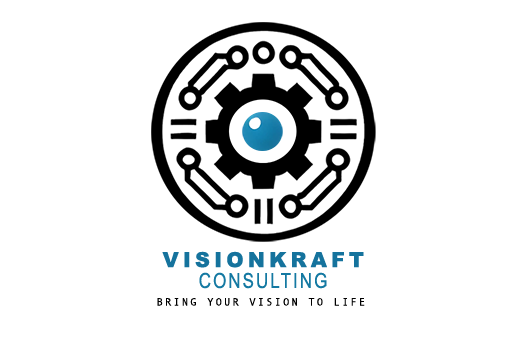
ethical-ai-practices:
How to Master Ethical AI Practices | VisionKraft Daily
In the rapidly evolving world of artificial intelligence (AI), the emphasis on ethical AI practices has never been more critical. As AI technologies permeate various sectors including healthcare, digital marketing, and sustainable development, the need to integrate ethical considerations in AI deployments is paramount. This blog post explores the significance of ethical AI, outlines best practices, and examines real-world applications, helping organizations like VisionKraft lead the way in responsible AI innovations.
Understanding Ethical AI
Ethical AI refers to the practice of designing, developing, and deploying AI with good intention to benefit people while minimizing harm. This involves considerations related to fairness, transparency, accountability, and privacy. As AI systems can significantly impact many aspects of society, ensuring these systems are used ethically is essential to foster trust and respect human rights.
Key Components of Ethical AI:
1. Transparency: Knowing how AI systems make decisions is crucial to validate their fairness and accuracy.
2. Accountability: Ensuring that there is a clear line of responsibility for AI actions.
3. Fairness: AI systems must avoid bias to prevent discrimination against any group.
4. Privacy Protection: Safeguarding personal data processed by AI systems against unauthorized access and breaches.
Best Practices in Ethical AI Implementation
To master ethical AI practices, organizations must adopt a structured approach. Here are several actionable steps:
Develop an Ethical AI Framework
Create guidelines that define what constitutes ethical AI within your organization. This framework should address specific ethical concerns related to your industry, such as data handling in healthcare or consumer privacy in digital marketing.
Ensure Diverse Teams
Diversity in AI development teams is crucial. Teams with varied backgrounds can identify potential biases and ethical issues from multiple perspectives, leading to more inclusive AI solutions.
Continuous Ethics Training
Provide ongoing education for your team on the latest AI ethics developments. Regular training ensures that your team can anticipate and mitigate ethical issues before they arise.
Use Audit Trails
Implement mechanisms to track decision-making processes in AI systems. Audit trails not only increase transparency but also help in pinpointing accountability in case of adverse outcomes.
Engage Stakeholders
Include feedback from various stakeholders, including customers, regulatory bodies, and advocacy groups, in your AI development process. Their insights can provide valuable perspectives on potential ethical impacts.
Real-World Applications and Benefits
Healthcare
Error fetching quote from OpenAI.
In healthcare, ethical AI can enhance patient care by personalizing treatment plans and maintaining patient data confidentiality. For example, AI-driven diagnostic tools can analyze data from multiple sources, ensuring accurate diagnoses while adhering to ethical standards regarding data use.
Digital Marketing
In digital marketing, AI can help in creating more personalized user experiences while respecting user privacy. Ethical AI practices ensure that AI-driven recommendations are transparent and free from biases, enhancing customer trust.
Sustainable Development
AI can play a significant role in sustainable development by optimizing resource use and reducing waste. Ethical AI practices ensure that these technologies are developed and used without harming the environment or disadvantaged communities.
Conclusion and Call-to-Action
Mastering ethical AI practices is not just about compliance; it’s about building a foundation of trust and integrity in all AI initiatives. By doing the strategies outlined above, businesses can lead by example in the responsible use of AI technologies. We at VisionKraft are committed to pioneering ethical AI solutions across various sectors. Whether you are looking to integrate AI in healthcare, digital marketing, or sustainable development, our expert team is here to guide you through every step. Engage with us at VisionKraft to ensure your AI initiatives are ethical, effective, and aligned with your core values.
Further Reading and Resources
2. Data Privacy Best Practices
3. Sustainable AI Applications
Meta Description
Master ethical AI practices with our comprehensive guide. Explore key strategies, benefits, and real-world applications to ensure responsible AI use. By adopting these ethical guidelines and best practices, organizations can ensure their AI systems are not only powerful and innovative but also fair and considerate to the societal impacts they may have.
Thank you for taking the time to read our blog! We hope you found the information valuable and insightful. If you have any questions, comments, or topics you’d like us to cover in future posts, please don’t hesitate to reach out. Stay tuned for more updates, and don’t forget to subscribe to our newsletter for the latest news and insights.
Warm regards,
The VisionKraft Consulting Team
